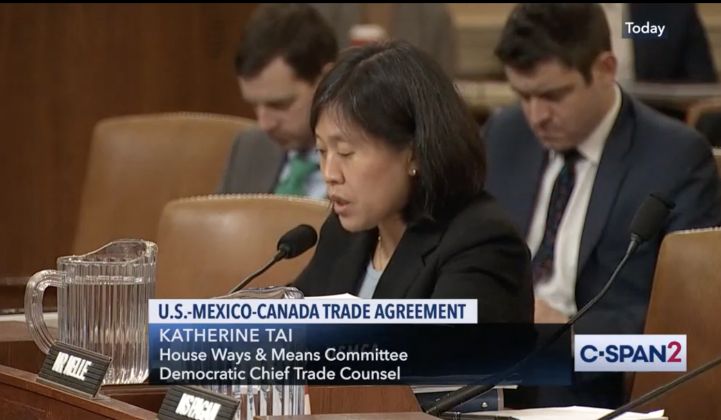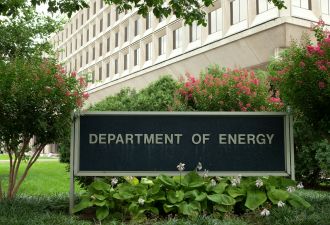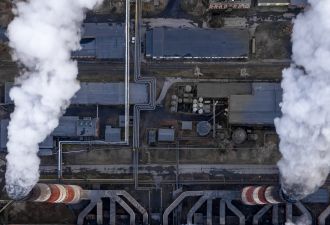The Biden-Harris administration is expected to choose Katherine Tai, currently chief trade counsel at the House Ways and Means Committee, as the next U.S. Trade Representative. Politico was the first to report the selection.
USTR traditionally is not the flashiest of cabinet-level positions. But President Trump’s aggressive trade policies and “America First” mentality has elevated interest in the pick. The Trump administration’s Section 201 tariffs on imported solar cells and modules mean the role is also a focus for parts of the solar industry hoping to shift policy under the new administration.
The Trump administration established four years of declining tariffs on imported solar in January 2018. In October, the president issued a proclamation that would increase the tariffs in their last year. President Trump also directed the USTR to investigate whether the tariffs’ term should be extended.
In the years since the creation of the tariffs, solar companies have pursued litigation over an exclusion to bifacial solar that the administration offered and later revoked. In November, a judge with the U.S. International Trade Court ruled the administration could enforce tariffs on bifacial solar due to the October presidential proclamation.
It’s unclear how the Biden-Harris administration will approach the controversy. In a December interview with the New York Times, the president-elect said he would not make immediate changes to tariffs. Biden is expected to take a more multilateral approach to trade than his predecessor. But he also told the newspaper he would “pursue trade policies that actually produce progress on China’s abusive practices” such as “stealing intellectual property” and “dumping products.”
On Thursday, the Solar Energy Industries Association launched a campaign against forced labor and encouraged solar companies to move supply chains out of China’s Xinjiang province. The Biden campaign has categorized the ongoing human rights abuses and forced labor in the region as “genocide.”
The selection of Tai, who has worked at USTR as an associate general counsel and as chief counsel for China trade enforcement for the World Trade Organization, reiterates Biden's "strong signals that he intends to be tough on China," said Jeff Navin, a co-founder at consultancy Boundary Stone Partners who worked at the Department of Labor and the Department of Energy during the Obama administration.
“[Tai] knows China, and she knows enforcement, and that’s going to be helpful in making sure that American manufacturers and their workers are protected. She will not be afraid of any fight on dumping, and she will know how to use every tool in the USTR toolbox to push the Biden trade agenda,” said Navin.
“In terms of solar, she will vigorously enforce the rules that are on the books, and I wouldn’t think she would be in any hurry to wipe away existing rules like 201 without putting something in place to protect manufacturing jobs.”
The transition team did not respond to a request for comment on the pick or how it might impact solar tariffs.
U.S. solar industry split over tariffs
Section 201 solar tariffs have split the industry, with the largest solar trade group opposing them and domestic manufacturers generally supportive of them.
Having an ally at USTR who “understands some of the unique challenges the [solar] industry faces” is an important priority for the Solar Energy Industries Association heading into the new administration, president and CEO Abigail Ross Hopper told Greentech Media earlier this week. SEIA declined to comment specifically on Tai’s selection for the position.
Tai, who is Asian American, would be the first woman of color to hold the position if confirmed. Her selection has won support from both labor and business groups.
As president, Biden has promised an ambitious expansion of renewables as well as a boost for U.S. manufacturing. These goals aren't necessarily at odds but have often been framed as such by current debates on solar tariffs.
While SEIA and renewables developers such as Invenergy have argued that tariffs have hindered the growth of the solar industry in the United States, companies with domestic manufacturing facilities, such as Hanwha Q Cells and First Solar, believe cheap imports harm the competitiveness of U.S.-made products.
As the Biden-Harris administration mulls trade policy, it will have to balance ambitious clean energy and climate goals with promises to buoy well-paying renewables jobs in the U.S.
“They’re going to be weighing that,” said Dave Glynn, an attorney with Holland & Hart. “I wouldn’t rush out and assume the tariffs won’t go into play or that [bifacial] exclusion will come back.”
After the recent decision in the U.S. Court of International Trade, SEIA said it would explore further legal action regarding enforcement of the bifacial exclusion. Because authority over the exclusion now resides with Trump’s October presidential proclamation, the Biden administration could undo the policy with another proclamation.



